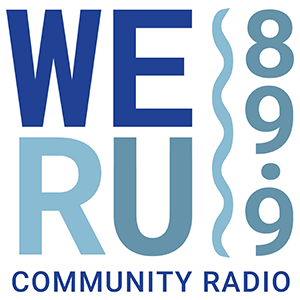During the 1980s, state sanctioned military and paramilitary forces killed over 73,000 Salvadorans and displaced over a million more to Central America (notably impoverished Honduras), Mexico and the United States. In a consistent policy, supported militarily and financially by the United States, the Salvadoran government engaged in bombings, massacres, routine murders, rapes and the customary “disappearances” that targeted unarmed civilians, the campesino, labor and religious organizers, as well as the as the civilian guerilla fighters known as the FMLN.
The FMLN engaged the government forces for 12 years in order to bring on economic and human rights reforms, but it was in the Honduran refugee camps where real progress began. Despite their lack of resources and the continued aggression directed towards them, the Salvadorian refugees in Honduras solidified their models of participatory democracy, collectivity, skill sharing and literacy, to form what is currently the admirable and well-organized Associations of Rural Communities. The unarmed camps dedicated themselves to returning to their lands to builds stability, peace and an alternative model of democracy. In 1987, one of the first towns to repopulate was the mountainous Guarjila.
Nestled within the northern department of Chalatenango, Guarjila is currently the home of WERU’s sister station, Radio Sumpul. After the civil war, community radio stations started forming all around the country but were not immediately accepted by the government. The Salvadorian State required these startup stations to apply for broadcasting licenses, but while the stations were in the process of doing so the government sent out several forces to raid and shut them down… all were closed except for Radio Sumpul.
The Sumpul staff and programmers barricaded the building and rang the church bells in anticipation of the advancing Salvadorian military. More than thousand people came in response to the bells and aided Radio Sumpul by blocking the raid with their bodies, their screams and several large boulders they unearthed from the mountain. Government forces retreated to the lowlands.
Today Radio Sumpul is known as “The Voice and Free Song of Chalatenango” and broadcasts both music and news/public affairs on a variety of topics affecting the communities of Chalatenango. Radio Sumpul is one of many community stations in a network organized through the association ARPAS, whose members pay collectively for, and share, the frequency 92.1. The station has an all-volunteer staff with no paid personnel. The programmers are mostly between the ages of 14 and 21 and do three-hour shows. The community radio station runs on a shoestring budget and struggles to stay operating. Last year, their transmitter was damaged during a lightning storm. They were able to borrow another and get back on their feet after a couple months of dead air, but problems kept coming. Shortly after their transmitter repairs the station lost phone service because they simply couldn’t afford to pay their bill. Isolated in the mountains the station faces an uphill battle to maintain programming every day.
11/1/10 Update from Radio Sumpul, El Salvador:
1. Radio Sumpul has been off the air since last May. Over the past 2 years both a lightning strike
(which took them off for a few months) and then later a flood from a hurricane has taken
them off the air. Since May, they have been in need of a new transmitter, voltage regulator,
lightning rod and repairs to their building where it is stored among some other smaller
items. They are currently down to 1 halftime staff person and 13 volunteers. They are not
connected to the Internet to stream their shows for Salvadoran expats living in the US.
2. Here is a little bit about their programming: When on the air, they broadcast daily from 5 am
to 9 pm. On a typical day of programming they start off with Ranchera music, AM
announcements (such as public events, patron saint festivals, community assemblies and
birthdays) from 6:30 to 7 am, followed by a mix of different Latin music styles: Grupera,
Merengue, Bachata, and Tropical music –played in blocks until 11:40 am when they wrap up
the hour for more announcements. Between noon and 5:30 they have “Hits from Yesterday”,
then they take requests, have a children’s hour, folk music and then eclectic music. News is
from 5:30 to 6:30 pm followed by Reggae Techno Youth Music until 9 pm.
3. Radio Sumpul is also part of the region known as Chalatenango and is part of the organized rural development association. Every December they have a community wide festival to celebrate their radio anniversary.
Operating a Community Radio Station in rural El Salvador presents many challenges, including a variety of technical problems that must be overcome in order to serve the people. Radio Sumpul has no shortage of technical and equipment challenges. Radio Sumpul is part of a social movement working to empower rural people and all Salvadorans struggling against economic, environmental, cultural and political oppression, and it is difficult to provide the most timely national news and information to its community without such up to date technology.
We invite listeners to help contribute to future Radio Sumpul needs by sending checks to: WERU, P.O. Box 170, East Orland, ME 04431, with “Attn. Radio Sumpul” on the envelope and in the memo line of the check.
